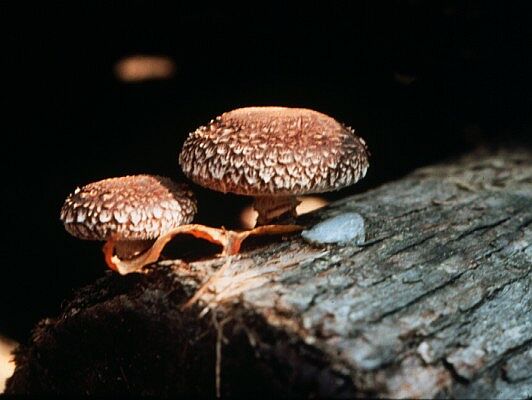Mushrooms
go.ncsu.edu/readext?268190
en Español / em Português
El inglés es el idioma de control de esta página. En la medida en que haya algún conflicto entre la traducción al inglés y la traducción, el inglés prevalece.
Al hacer clic en el enlace de traducción se activa un servicio de traducción gratuito para convertir la página al español. Al igual que con cualquier traducción por Internet, la conversión no es sensible al contexto y puede que no traduzca el texto en su significado original. NC State Extension no garantiza la exactitud del texto traducido. Por favor, tenga en cuenta que algunas aplicaciones y/o servicios pueden no funcionar como se espera cuando se traducen.
Português
Inglês é o idioma de controle desta página. Na medida que haja algum conflito entre o texto original em Inglês e a tradução, o Inglês prevalece.
Ao clicar no link de tradução, um serviço gratuito de tradução será ativado para converter a página para o Português. Como em qualquer tradução pela internet, a conversão não é sensivel ao contexto e pode não ocorrer a tradução para o significado orginal. O serviço de Extensão da Carolina do Norte (NC State Extension) não garante a exatidão do texto traduzido. Por favor, observe que algumas funções ou serviços podem não funcionar como esperado após a tradução.
English
English is the controlling language of this page. To the extent there is any conflict between the English text and the translation, English controls.
Clicking on the translation link activates a free translation service to convert the page to Spanish. As with any Internet translation, the conversion is not context-sensitive and may not translate the text to its original meaning. NC State Extension does not guarantee the accuracy of the translated text. Please note that some applications and/or services may not function as expected when translated.
Collapse ▲
North Carolina has seen a surging interest in the production and wild-harvesting of edible and medicinal mushrooms. The two most popular mushrooms being cultivated are shiitake and oyster, but chicken of the woods, lion’s mane, and maitake, and reishi are also increasing in production. North Carolina has a good natural environment for outdoor mushroom production on logs with high humidity and rainfall and moderate temperatures, but mushrooms can also be produced indoors anywhere in the state.
Some Mushroom Resources
- Mushrooms – information page on the NC Extension New Crops & Organics website
- Mushroom Production – Penn State Extension (a leader in mushroom cultivation)
- Mushrooms – University of Kentucky Center for Crop Diversification
- Specialty Mushrooms – Cornell Small Farms program
Meet a few North Carolina mushroom growers
- Deep Woods Mushrooms in the Southern mountains grows shiitake, reishi, and more, offers classes, consults.
- Haw River Mushrooms in central NC grows many kinds of mushrooms, teaches, consults, and makes mushroom jerky


